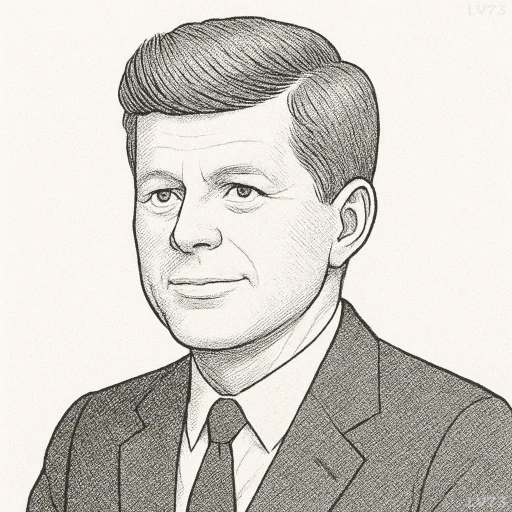“Our growing softness, our increasing lack of physical fitness, is a menace to our security.”

- May 29, 1917 – November 22, 1963
- American
- Politician
table of contents
Quote
“Our growing softness, our increasing lack of physical fitness, is a menace to our security.”
Explanation
In this statement, John F. Kennedy warns about the decline in physical fitness and the broader implications it has for the security and well-being of the nation. By describing this trend as a “menace,” Kennedy emphasizes the seriousness of the issue, framing it not merely as a personal or societal concern but as one that could directly affect the strength and readiness of the country. In an era dominated by Cold War tensions and the potential for military conflict, Kennedy understood that a nation’s security was not solely dependent on its political or military strategies, but also on the health and resilience of its people. A population that lacks physical vigor and discipline might struggle to meet the physical demands of national defense or endure the rigors of a challenging geopolitical environment.
Kennedy’s remark can also be interpreted as a call to action for Americans to take responsibility for their own health and well-being. In a post-World War II era where technological advancements and industrialization were beginning to lead to a more sedentary lifestyle, Kennedy saw the growing trend of obesity, unfitness, and physical inactivity as a threat to the nation’s strength and resilience. He connected the decline in physical fitness to a broader societal issue: the loss of mental and moral fortitude that is often linked to physical discipline. Kennedy’s appeal was not just about looking better or feeling stronger—it was about ensuring that the American people remained physically prepared to face the challenges of the modern world, whether on the battlefield or in the realm of everyday life.
This statement still holds relevance today, as lifestyle diseases (such as heart disease, diabetes, and obesity) continue to pose significant public health challenges. Kennedy’s emphasis on fitness resonates with contemporary calls for greater focus on health and wellness as integral to the success of a nation, especially in a time when global conflicts, pandemics, and climate crises can test the limits of a population’s endurance. His call for physical fitness, as a part of broader national strength, can be seen as an early recognition of how public health intersects with national security and prosperity—an idea that continues to shape health policy and military readiness to this day.
Would you like to share your impressions or related stories about this quote in the comments section?
